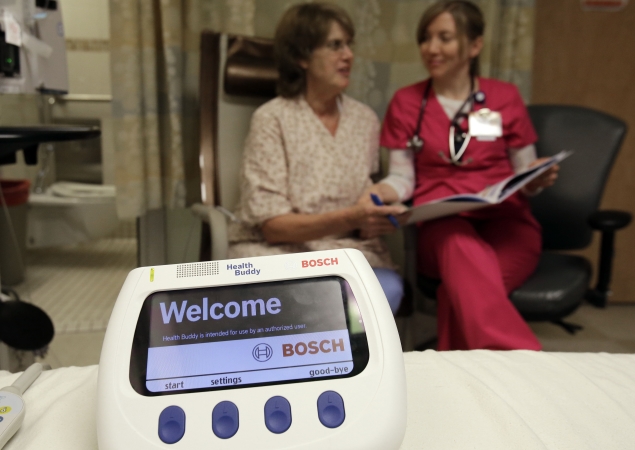- Home
- Others
- Others News
- A portable gadget for detecting strokes
A portable gadget for detecting strokes

A bedside electronic device that measures eye movements can successfully determine whether the cause of severe, continuous, disabling dizziness is a stroke or something benign, according to results of a small study led by Johns Hopkins researchers, reports Science Daily.
"Using this device can directly predict who has had a stroke and who has not," says David Newman-Toker, M.D., Ph.D., an associate professor of neurology and otolaryngology at the Johns Hopkins University School of Medicine and leader of the study, according to the journal Stroke.
"We're spending hundreds of millions of dollars a year on expensive stroke work-ups that are unnecessary, and probably missing the chance to save tens of thousands of lives because we aren't properly diagnosing their dizziness or vertigo as stroke symptoms."
Newman-Toker says if additional larger studies confirm these results, the device could one day be the equivalent of an electrocardiogram (EKG), a simple noninvasive test routinely used to rule out heart attack in patients with chest pain. And, he adds, universal use of the device could "virtually eliminate deaths from misdiagnosis and save a lot of time and money."
Get your daily dose of tech news, reviews, and insights, in under 80 characters on Gadgets 360 Turbo. Connect with fellow tech lovers on our Forum. Follow us on X, Facebook, WhatsApp, Threads and Google News for instant updates. Catch all the action on our YouTube channel.
Related Stories
- Samsung Galaxy Unpacked 2026
- iPhone 17 Pro Max
- ChatGPT
- iOS 26
- Laptop Under 50000
- Smartwatch Under 10000
- Apple Vision Pro
- Oneplus 12
- OnePlus Nord CE 3 Lite 5G
- iPhone 13
- Xiaomi 14 Pro
- Oppo Find N3
- Tecno Spark Go (2023)
- Realme V30
- Best Phones Under 25000
- Samsung Galaxy S24 Series
- Cryptocurrency
- iQoo 12
- Samsung Galaxy S24 Ultra
- Giottus
- Samsung Galaxy Z Flip 5
- Apple 'Scary Fast'
- Housefull 5
- GoPro Hero 12 Black Review
- Invincible Season 2
- JioGlass
- HD Ready TV
- Latest Mobile Phones
- Compare Phones
- Tecno Pova Curve 2 5G
- Lava Yuva Star 3
- Honor X6d
- OPPO K14x 5G
- Samsung Galaxy F70e 5G
- iQOO 15 Ultra
- OPPO A6v 5G
- OPPO A6i+ 5G
- Asus Vivobook 16 (M1605NAQ)
- Asus Vivobook 15 (2026)
- Brave Ark 2-in-1
- Black Shark Gaming Tablet
- boAt Chrome Iris
- HMD Watch P1
- Haier H5E Series
- Acerpure Nitro Z Series 100-inch QLED TV
- Asus ROG Ally
- Nintendo Switch Lite
- Haier 1.6 Ton 5 Star Inverter Split AC (HSU19G-MZAID5BN-INV)
- Haier 1.6 Ton 5 Star Inverter Split AC (HSU19G-MZAIM5BN-INV)







![[Partner Content] OPPO Reno15 Series: AI Portrait Camera, Popout and First Compact Reno](https://www.gadgets360.com/static/mobile/images/spacer.png)









